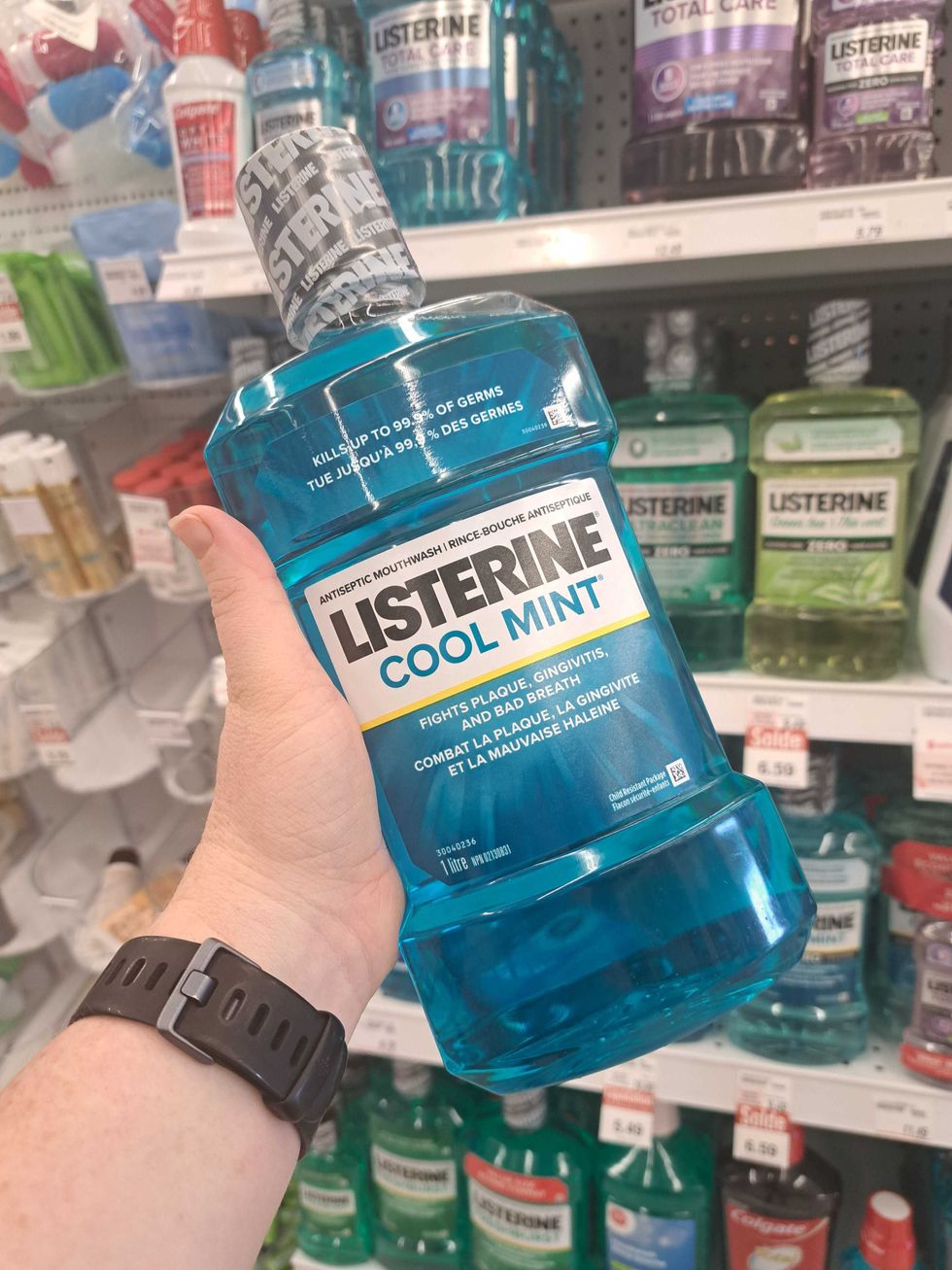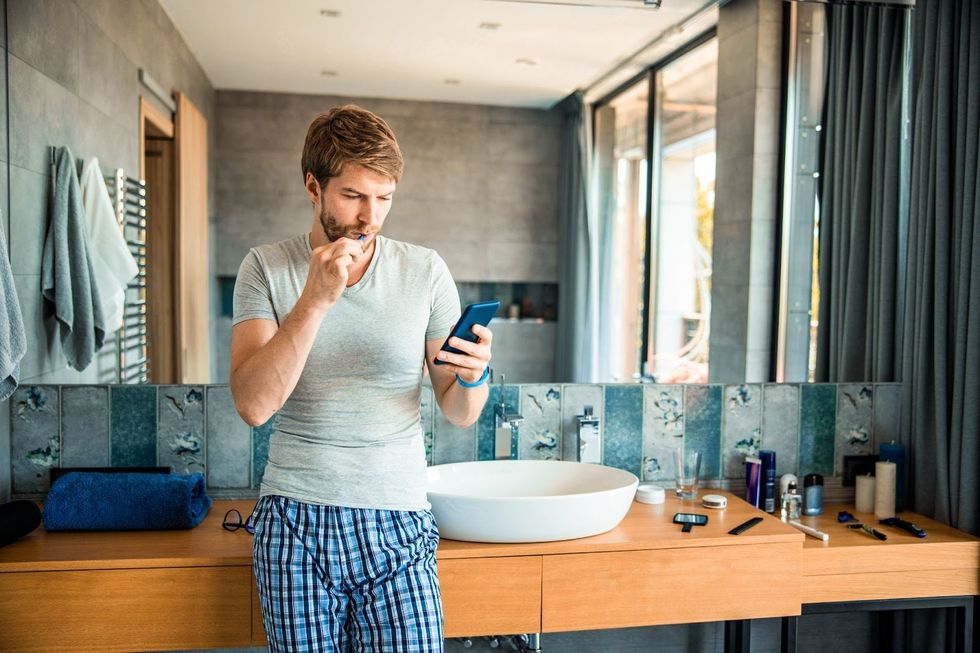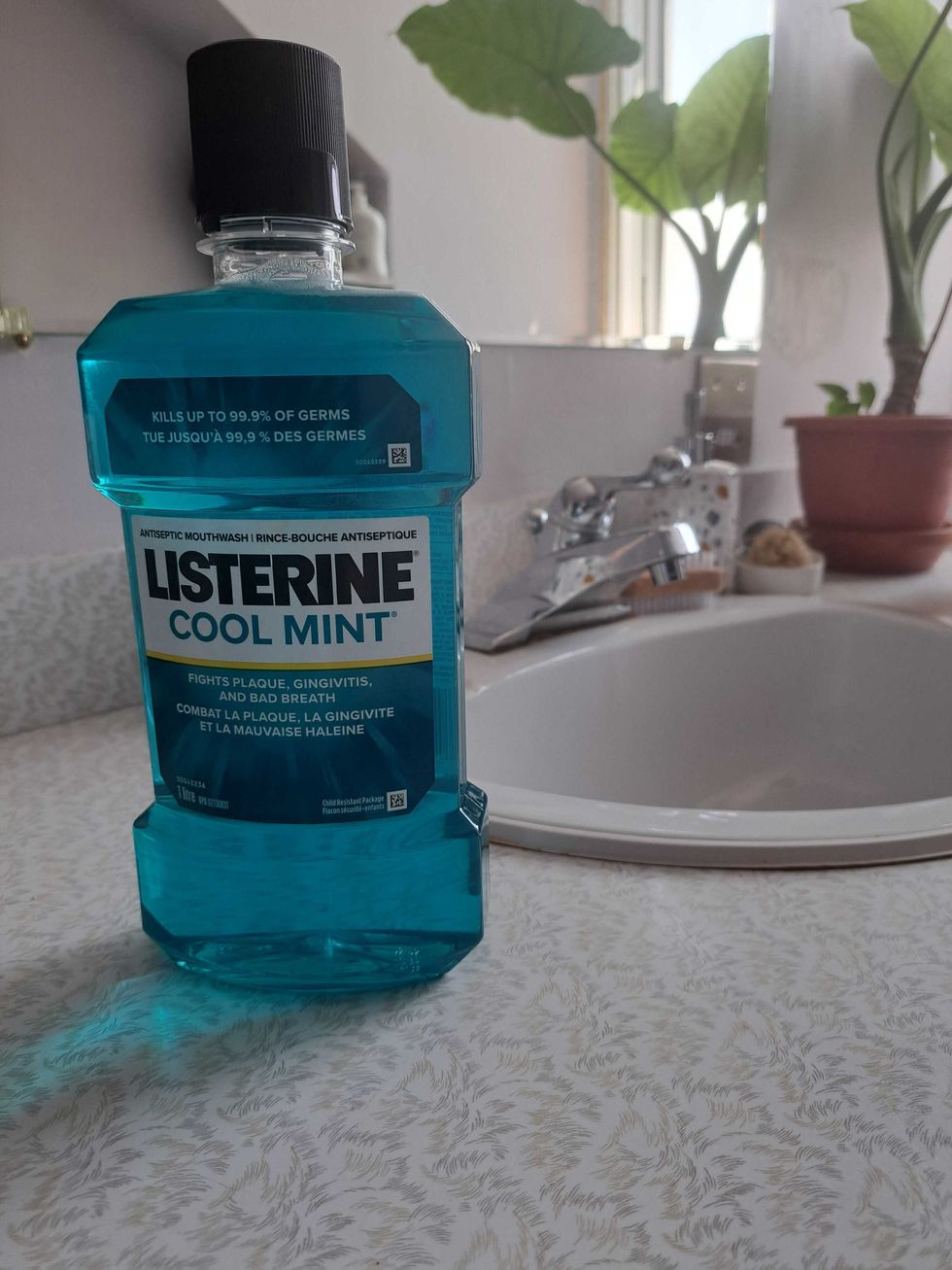The Easiest Way To Boost Your Teeth-Brushing Routine, According To A Canadian Dentist
You've probably heard it your whole life: You've got to brush your teeth. But having a good oral hygiene routine does more for you than just ensuring you're not going around with spinach stuck in your chompers.
Narcity Canada talked to Dr. Andrea Gelinas — Toronto-based dentist and owner of Gelinas Dental Studio — who said that using mouthwash after brushing and flossing is arguably the easiest way to boost your teeth-cleaning habits.
While you might consider mouthwash to be a cherry on top of your dental routine but not particularly essential, Dr. Gelinas said that the science is in on how beneficial rinsing with mouthwash can be.
This interview has been condensed and edited for clarity.
"It's evident that incorporating brushing, flossing, and mouth rinse into one's oral care routine leads to a significant decrease in plaque," Dr. Gelinas told Narcity.
LISTERINE®, for example, has been proven to destroy five times more plaque above the gumline than flossing and brushing alone. Of course, rinsing is not meant to replace either brushing or flossing.
The purpose of a good teeth-cleaning routine all comes down to managing the buildup of plaque — the health implications of which go a lot further than your mouth.

Plaque naturally builds up on teeth over a day spent eating and drinking. Inside your mouth, it creates an environment that enables bacteria to grow, which can harm your oral and overall health.
Once the bacteria are given a chance to spread, things like gingivitis — the earliest stage of gum disease — can develop, causing inflammation that's associated with an increased risk of tooth loss and even heart disease.
Dr. Gelinas equates a proper dental hygiene routine to a skincare or sleep routine, adding: "The mouth serves as the gateway to the body, and investing in good oral hygiene can contribute to overall better health."
In a routine that already includes brushing and flossing, Dr. Gelinas told Narcity that rinsing with a mouthwash like LISTERINE® can add a whole new dimension to a clean mouth.

"Brushing and flossing serve as mechanical means of removing plaque," she said.
"The liquid nature of
mouthwash allows it to reach areas inaccessible to toothbrushes and floss, enabling it to break down bacteria on a cellular level. This comprehensive action results in a more significant reduction in plaque."

If you're on board with mouthwash but don't know which one to choose, Dr. Gelinas suggests looking for one that targets your particular needs, whether it's fighting cavities, soothing gingivitis or wiping out bad breath.
It's also important to ask your dentist or hygienist for personalized recommendations and to always follow the label because the guidelines may vary.

Finally, she recommends scraping your tongue as a surefire way to manage halitosis.
"The tongue harbours a significant amount of bacteria that can contribute to bad breath," she said. "Gently scraping your tongue using a tongue scraper helps remove this bacteria and improves oral hygiene."
Putting in the effort to maintain a good oral hygiene routine is a smart move, not just to keep your pearly whites in good condition but also for feeling good, inside and out.
And if you want to feel confident that you're tackling plaque in all your mouth's nooks and crannies, rinse confidently with a mouthwash like LISTERINE®.
Because Dr. Gelinas nailed it when she said: "There is nothing more satisfying than witnessing people smile confidently."
To learn more about the benefits of mouthwash, check out LISTERINE®'s website or follow them on Facebook, Instagram or Twitter.
To be sure this product is right for you, always read and follow the label.
The information in this article is not intended and should not be construed as medical advice. Consult your health care provider before making any health care decisions or for guidance about a specific medical condition.
